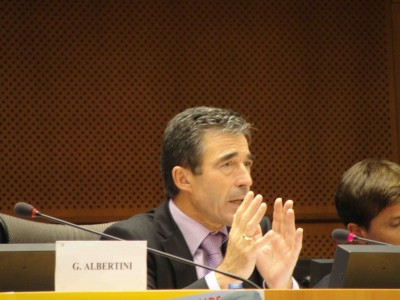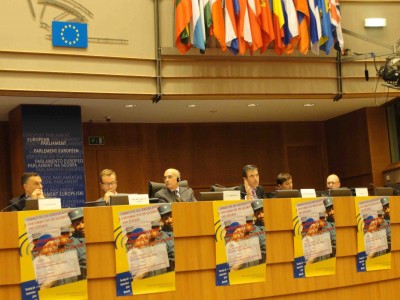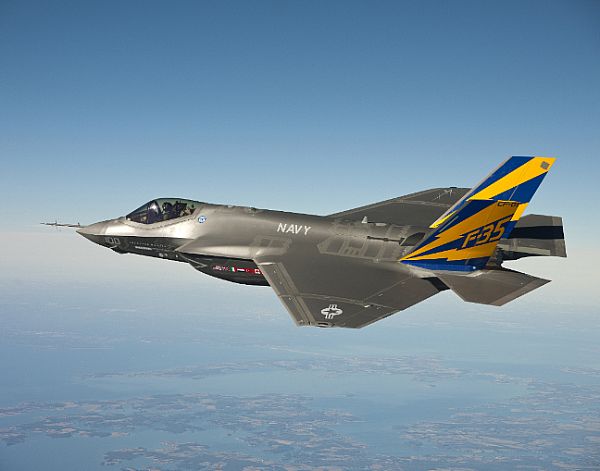The “total” approach according to Rasmussen. And NATO-EU cooperation…

(BRUSSELS2) One cannot deny the Secretary General of NATO, Anders Fogh Rasmussen, a certain political sense and a taste for perseverance. On Tuesday, before European and national deputies, he reiterated his desire to find new modes of cooperation with the EU but also his new approach, "total approach" which therefore differs from the "comprehensive approach" until prerogative of the European Union. Inevitably, listening to Anders Fogh Rasmussen, the Secretary General of NATO, one can only be struck by the political force of his speech, his slow work of plowing, in particular on the cooperation with the EU which he intends to anchor in NATO, unless it is the other way round... (NB: On the creation of a civilian unit within NATO, read here).
Better cooperation between NATO and the EU
« I have come here to ask you to support EU-NATO cooperation in a meaningful way explained Rasmussen. " Our two organizations have undergone profound changes over the past 15 years. The European Union is a multidisciplinary player today, including on defense issues, because it conducts civilian missions and military operations. Closer interaction between the EU and the Alliance has become a strategic necessity. »
And the Secretary General of NATO to propose, in line with what he had already mentioned in Palma de Mallorca, a three-step approach (1). With concrete actions.
“1° We must meet regularly at all levels, in common areas. Today, unfortunately, we cannot discuss security issues between our two organizations other than Bosnia and Herzegovina.
2° We must work more closely on operations. More and more often, we find ourselves on the ground together, such as in Kosovo, in Afghanistan, or on the Somali coast. A new level of cooperation must therefore be found.
3° Avoid certain expenses. For example, we must be prepared to deal with IEDs (improvised explosive devices). The example of Afghanistan shows the need for it. We can avoid the duplication of our personnel. »
"Talk to each other, act together"
« The total approach, it is this, according to Rasmussen: "we must speak, act together when necessary". " NATO respects the decision-making autonomy of the EU. As NATO wants to keep its decision-making autonomy. We must find cooperation on an equal footing. It is a condition of a partnership of trust »
The Secretary General returned to Turkey on several occasions, proposing " a practical solution without touching on the two (substantive) questions such as Turkey's recognition of Cyprus or Turkey's accession to the European Union. I propose that all member states could take part in NATO exchanges (therefore including Cyprus). But in exchange for this, the European Union must move its pawns ". That is to say in particular through an EU-Turkey security agreement and Turkey's participation in the European Defense Agency. " Turkey is the second contributing State to Althea but it does not take part in the decisions he quoted, highlighting the ISAF operation and non-member states of the Alliance. who take part in the decisions (2).
A new strategic concept based on the "total" and "preventive" approach

Rasmussen then addressed the reform of NATO's strategic concept, detailing the four principles that will guide the discussion with the Heads of State and Government in Lisbon at the beginning of November. The new threats, the preventive approach, more sustained relations with the EU and with other partners, and the restructuring of the armies of the Alliance, constitute the spearhead of the new concept.
Expansion to new threats. The undertaking of collective defence, according to article 5 of the Treaty, " stay solid as a rock. We support it with military activities. (But) We have to prepare for new threats: cyberattacks, weapons of mass destruction, energy supply cuts. »
The preventive approach. " Rather than reacting to a crisis when it is, we must act upstream, act to prevent a crisis. This is what we call the total approach. For this, we need capacities, relationships with other organizations »
NATO as an international player. Third, how NATO can promote international stability. " Partnerships with the EU is necessary. We need to expand the number of topics we can discuss with our partners »
Reforming the armed forces: better for less. We must have more deployable forces outside Rasmussen stressed. " Too many of our forces remain in barracks. It is expensive and not suited to the needs. All of that needs to be changed. »
Russia, Afghanistan, Middle East, Iran, Missile Shield
Answering questions from MEPs or on his own initiative, the NATO Secretary General also touched on certain key subjects: a deeper partnership with Russia, a long-term presence in Afghanistan (including after the withdrawal), the offer of participation in an international force in the Middle East.
NATO Cyber-Strike Back
« Cyber attacks are not theory. This represents a real threat to our military capabilities. They weigh on the whole society. NATO has the planning and command structures that represent an effective way to respond. But we have to develop our capacities. »
A missile shield? "From Vancouver to Vladivostok"
« We must protect ourselves better: with an anti-missile system, by expanding our capabilities beyond the forces deployed, by covering the territories of our Allies. It is a territorial defense system. This is not theory for the secretary general. " Iran can, with its missiles, reach our territories. But this anti-missile shield should have a dimension larger than the current territory of NATO. " NATO and Russia should cooperate. This is necessary in operational matters but also politically. This would allow a security architecture from Vancouver to Vladivostok. "For Rasmussen, " rather than talking about a treaty, another document, we are talking about concrete security. »
Russia in NATO? "fields of cooperation"
« I don't think that's very realistic. They did not submit a formal request to us. And the Russian ambassador to NATO said that "he would never ask for membership". On the other hand, we can launch a strategic partnership. We may not agree on Georgia, but there are areas where we can act together: Afghanistan, terrorism, the fight against drugs, piracy, anti-missile defense are "reservoirs of cooperation". »
Leave Afghanistan? "on site after 2014"
« Yes we will leave Afghanistan. There is no doubt. The question is when. NATO will leave Afghanistan as soon as conditions permit. Our goal is to hand over the responsibilities to the Afghan government, hopefully next year. The Afghan president hopes that he will have responsibility for the whole territory by 2014. International forces will doubtless remain on the spot beyond this date, but to train. »
NATO in the Middle East? "We can consider it"
« Let's be optimistic, let's assume a peace agreement, the presence of international forces will then be required if only to verify the application of a peace agreement. If there is a peace agreement, if the stakeholders ask for our participation, if the UN gives a mandate, these are the three conditions, then we can envisage such a mission. But first there needs to be a peace agreement, and that's no small feat. »
(1) Read also:
(2) Slightly distorted point of view in my opinion because the whole of ISAF's strategy is above all guided by the Americans. Read :
- Afghanistan. A French general “opens” it, the debate begins… finally!
- McChrystal shoots Biden on sight. The French, too, take it for their rank!
(Nicolas Gros-Verheyde)


Comments closed.